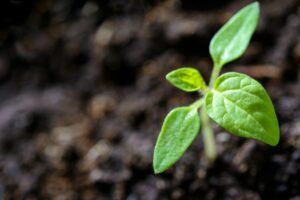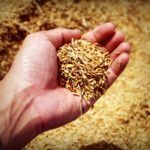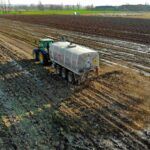Growing antibiotic resistance is risking the health of future populations. As part of the problem stems from antibiotics entering agriculture via treated wastewater.
With increasing demand for freshwater resources due to climate change and global population growth, reusing wastewater has become a viable alternative for crop irrigation in water stressed regions. However, this wastewater is known to contain the residues of pharmaceuticals, including the many antibiotics that are prescribed for treatment. Although these occur as mixtures of multiple compounds in wastewater irrigation, little is known about the effect they have on soil and plant health.
PhytoPharm Project
Using barley as its model crop, the EU-supported PhytoPharm project investigated the impacts of antibiotic mixtures. The researchers showed that plants in their early growth stages were most susceptible, with increased antibiotic exposure resulting in fewer seeds germinating. This effect occurs at concentrations predicted for wastewater effluent. Furthermore, evidence suggested that the impacts of antibiotic exposure may be enhanced when combined with other stressors.
Contaminant prediction
To address the challenge of determining representative mixtures of pharmaceuticals in wastewater, the PhytoPharm team developed an algorithm to predict antibiotic concentrations in wastewater effluents. The model’s utility was also demonstrated by evaluating potential hotspots of antibiotic resistance in rivers at the continental scale using EU pharmaceutical prescription data, further refined for the United Kingdom and to catchment scale for the village of Strensall, in England. This can be used to identify locations where antibiotic concentrations may cause increased risk of antibiotic resistance and which compounds are likely responsible.
Results
The researchers utilised the algorithm to conduct a mesocosm study of barley irrigated with a synthetic wastewater composed of antibiotics at representative concentrations. The team found that certain compounds are more mobile than others in the plant-soil system. However, they also showed that there was not a significant accumulation of antibiotics added by routine irrigation, indicating that the compounds are being degraded either biotically (microbial degradation) or abiotically through hydrolysis and photolysis. Results also showed that despite a toxic effect in the early stages of barley growth, the mature plant was not measurably impacted by antibiotic exposure.
Regarding increased resistance, the team suspects that it is influenced more by length of exposure time, than increasing concentrations. The transmission of greenhouse gases from the mesocosms was also measured and revealed subtle impacts on the net ecosystem exchange of CO2, resulting from antibiotic exposure. The team is now connecting changes in gas flux with changes in the structure of the microbial communities which produce them.






Leave a Reply